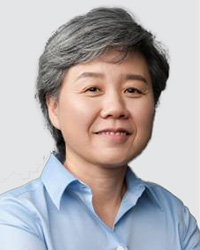Webinar Series
The Economic Cost of Locking down like China: Evidence from City-to-City Truck Flows
2022
Session Chair: Jun PAN
Professor of Finance and SAIF Chair Professor, Shanghai Advanced Institute of Finance, Shanghai Jiao Tong University and Senior Fellow, ABFER
Michael SONG, Professor, Department of Economics, Chinese University of Hong Kong and Senior Fellow, ABFER
Co-authors:
Jingjing CHEN, PhD Student, School of Economics and Management, Tsinghua University
Wei CHEN, Assistant Professor, School of Economics, Zhejiang University
Ernest LIU, Assistant Professor of Economics, Princeton University
Jie LUO, Assistant Professor, School of International Trade and Economics, University of International Business and Economics
Elisa GIANNONE, Assistant Professor of Economics, The Pennsylvania State University
Speakers
-

Michael SONG
Professor, Department of Economics, Chinese University of Hong Kong and Senior Fellow, ABFER
Michael Song is a professor at the Department of Economics, Chinese University of Hong Kong (CUHK), an outstanding fellow of the Faculty of Social Science at CUHK, a co-director of CUHK-Tsinghua Joint Research Center for Chinese Economy and a distinguished visiting professor at the School of Economics and Management, Tsinghua University. His research focuses onChinese economy and macroeconomics. He published papers on leading academic journals including American Economic Review and Econometrica. His paper “Growing like China” won Sunyefang Economic Science Award and the Best Paper Award for Chinese Young Economists. Before joining CUHK, Prof. Song was an associate professor of economics at Chicago Booth. Prof. Song is also a co-editor of China Economic Review, an associate editor of Econometrica and Journal of European Economic Association and an academic committee member of China’s Economics Foundation.
-

Elisa GIANNONE
Assistant Professor of Economics, The Pennsylvania State University
Elisa Giannone is a Junior Researcher at CREI and a research affiliate at CEPR. She received her PhD in Economics from the University of Chicago in 2017, She was a Post-doctoral fellow at the International Economics Section at Princeton University in 2017/2018 and an Assistant Professor of Economics at Pennsylvania State University.
-

Jun PAN
Professor of Finance, Shanghai Advanced Institute of Finance (SAIF), Shanghai Jiao Tong University and Senior Fellow, ABFER
Jun Pan is currently a Professor of Finance and SAIF Chair Professor at Shanghai Advanced Institute of Finance (SAIF), Shanghai Jiao Tong University. Prior to joining SAIF in 2019, she was the School of Management Distinguished Professor of Finance and Professor of Finance at MIT Sloan School of Management. Jun has a B.S. degree in Physics from Shanghai Jiao Tong University, a Ph.D. in Physics from New York University, and a Ph.D. in Finance from Stanford University.
- 1
Session Format
Each session lasts for 1 hour 10 minutes (25 minutes for the author, 25 minutes for the discussant and 20 minutes for participants' Q&A). Sessions will be recorded and posted on ABFER's web, except in cases where speakers or discussants request us not to.
Registration
Please register here to receive a unique Zoom link. (Notice: Videos and screenshots will be taken during each session for the purpose of marketing, publicity purposes in print, electronic and social media)

